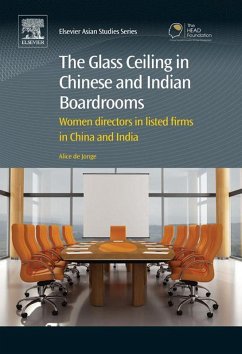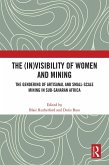This book is about women directors in China and India. The aim of the book is to understand more clearly where women are present on corporate boards, and the reasons for their continued absence from most listed company boards. The Glass Ceiling in Chinese and Indian Boardrooms is written at a time of increasing awareness, particularly in Europe, of the benefits of gender equity at the boardroom table, and of the costs of women's continued exclusion from corporate decision-making. Norway's gender equity legislation has now been instrumental in ensuring that women occupy over 40% of all company board seats in that country. France, Italy and Spain are amongst those countries now following the same path towards equity. But Asia in general, and the world's two largest nations in particular, still lag well behind. In China while women enjoy greater social and economic equality than many of their sisters in other parts of Asia, the male-dominated nature of the Party-state apparatus makes it unlikely that legislative change will be achieved any time soon. In India, while the country's 2013 Corporations Law now requires all major listed firms to have at least one woman director, the real challenges for women are social and economic, where much work remains to be done.
- Based on detailed surveys of 1,000 key listed firms in India and China
- Provides results from empirical questionnaire surveys of key firms
- Analyses the importance of board diversity in a rapidly changing world, and its significance for economic and environmental stability
Dieser Download kann aus rechtlichen Gründen nur mit Rechnungsadresse in A, B, BG, CY, CZ, D, DK, EW, E, FIN, F, GR, HR, H, IRL, I, LT, L, LR, M, NL, PL, P, R, S, SLO, SK ausgeliefert werden.









